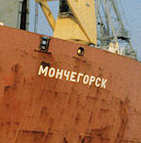 Nonagenarian New York prosecutor, Robert Morgenthau, still keeps trying to grab the spotlight after all these years, even if it means wasting immense amounts of New York state funds on a criminal prosecution he can’t win and which should have been brought, if at all, by federal prosecutors. I’m talking about his 118-count indictment released today against a Chinese citizen Li Fang Wei and a Chinese company LIMMT Economic and Trade Company, Ltd., both safely ensconced in China.
Nonagenarian New York prosecutor, Robert Morgenthau, still keeps trying to grab the spotlight after all these years, even if it means wasting immense amounts of New York state funds on a criminal prosecution he can’t win and which should have been brought, if at all, by federal prosecutors. I’m talking about his 118-count indictment released today against a Chinese citizen Li Fang Wei and a Chinese company LIMMT Economic and Trade Company, Ltd., both safely ensconced in China.
Notwithstanding the 59 pages of the indictment, it can all be boiled down to a few sentences. LIMMT was added to the Department of Treasury’s Specially Designated Nationals (“SDN”) list in 2006. This meant that any funds destined to LIMMT which passed through the U.S. banking system would be blocked. In order to avoid this outcome, LIMMT, and its manager Li Fang Wei, told its customers, all foreign, to send U.S. dollar payments to other accounts held by LIMMT under other names or by related companies at various Chinese banks. Some of these transactions transited New York banks 118 times. The indictment claims that each of these 118 transactions constituted the falsification of business records which is a criminal offense under New York Penal Law § 175.10. And there you have, in under two minutes, all 59 pages and all 118 counts.
I think that even if your legal training consists solely in watching Law and Order marathons on cable, you can probably see a glaring flaw in the theory of the indictment. In order for a crime to have been committed, the entries that each bank made when wiring funds at the request of LIMMT’s foreign customers had to be false. But these were all the real names of real accounts held at real Chinese banks, and the indictment does not try to claim otherwise. It’s not clear, then, what was falsified, particularly in the context of a statute that appears principally directed at cooking the books — i.e., entering a wrong dollar amount in the ledger and pocketing the difference.
Beyond that, there is of course the question of the jurisdiction of New York state courts over Chinese citizens for acts that occurred in China, that were legal in China, and, even to the extent that they fostered trade with Iran, didn’t have concrete effects in the United States. Even if there were a credible theory of prescriptive jurisdiction here, hell will freeze over before China will allow the U.S. to extradite Li Fang Wei under these charges.
Finally, of course, there is the legitimate question as to why a state prosecutor, even a New York state prosecutor, is mucking around in matters of U.S. foreign policy that are more properly in the purview of the Office of Foreign Assets Control (“OFAC”) which designated LIMMT in the first place. After all, OFAC had been blocking these attempts by LIMMT to alter its corporate identity by amending the SDN listing for LIMMT to include the aliases that are the subject of the New York state indictment. That was an appropriate response by OFAC to LIMMT’s shenanigans. I think it’s safe to say that OFAC doesn’t need, and probably doesn’t want, the efforts of a state DA and inveterate publicity hound to handle the foreign policy issues created by LIMMT’s trading activities.
What next? Is Morgenthau going to indict Syria’s Bashar al-Assad for supporting designated terrorist groups?


 Posted by
Posted by  Category:
Category: 

 An interesting
An interesting  Economic sanctions continue to spread into cyberspace as Microsoft
Economic sanctions continue to spread into cyberspace as Microsoft  Nonagenarian New York prosecutor, Robert Morgenthau, still keeps trying to grab the spotlight after all these years, even if it means wasting immense amounts of New York state funds on a criminal prosecution he can’t win and which should have been brought, if at all, by federal prosecutors. I’m talking about his
Nonagenarian New York prosecutor, Robert Morgenthau, still keeps trying to grab the spotlight after all these years, even if it means wasting immense amounts of New York state funds on a criminal prosecution he can’t win and which should have been brought, if at all, by federal prosecutors. I’m talking about his  Retired Russian merchant ship Monchegorsk, alleged to be carrying Iranian arms shipments, wound up in Cypriot hands after being forced by the U.S. Navy to moor in Cyprus last week. The ship was searched by Cypriot authorities which on Tuesday
Retired Russian merchant ship Monchegorsk, alleged to be carrying Iranian arms shipments, wound up in Cypriot hands after being forced by the U.S. Navy to moor in Cyprus last week. The ship was searched by Cypriot authorities which on Tuesday 

